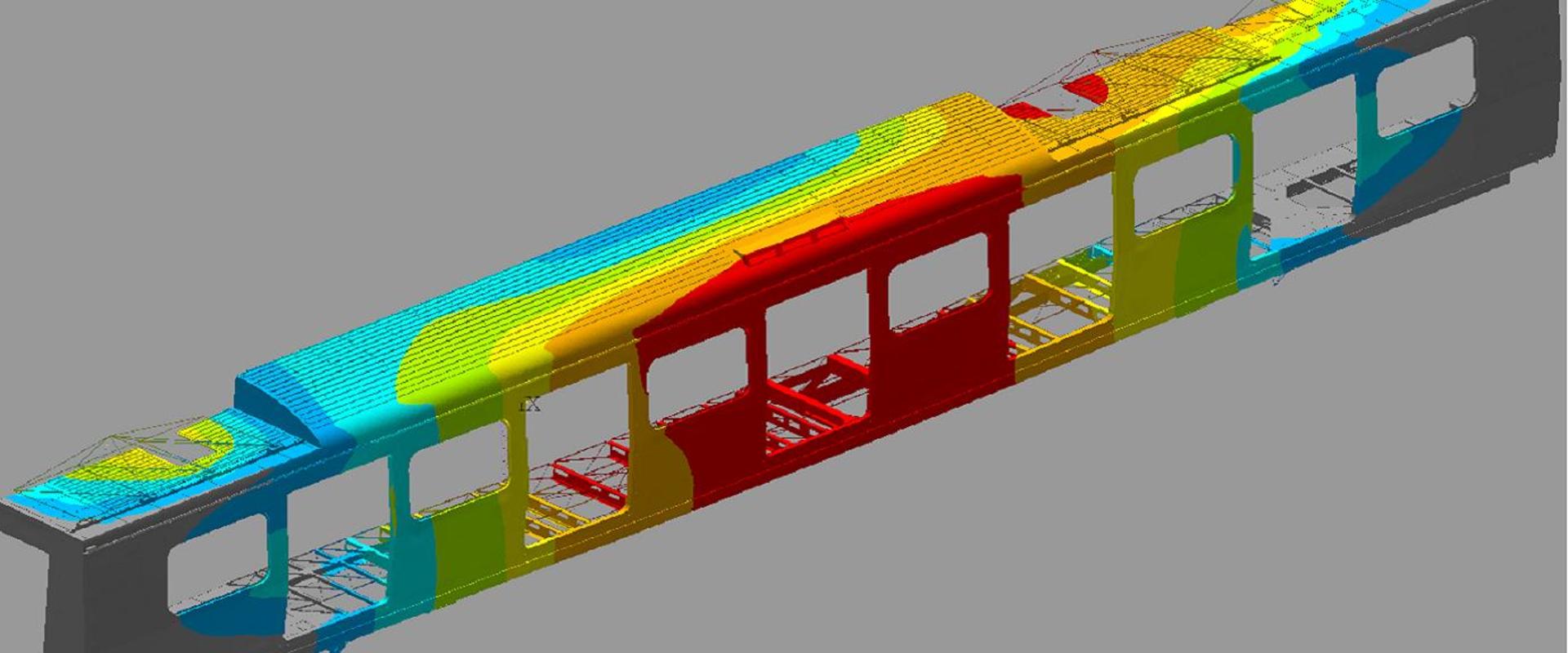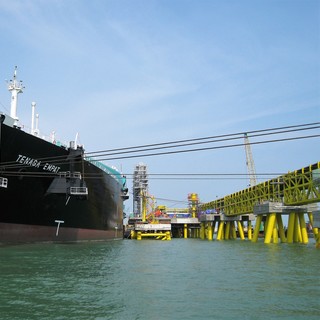Requirements
Our customer, a major metro rail operator, has railcars which were originally designed for a service-life of 30 years. During the service life of the trains our customer expressed an interest in keeping these trains in service for an additional 15 years which was over and above the original designed life. This meant added mechanical fatigue life requirement from the fleet.
We were commissioned to undertake the design, implementation and validation of reinforcement solutions for carbodies and bogies in the fleet with the intent of extending their service lives from 30 to 45 years.
Solutions
A train undergoes complex loading scenarios during its service. We developed a Finite Element Model (FEM) of the carbody and bogie to simulate actual loading scenarios which was then correlated with the test data. Mechanical fatigue damage of welds was then calculated for the trains in general accordance with BS7608:1993.
This high-fidelity model was then used to develop feasible design solutions in the form of reinforcements with an objective to meet the desired service life. The prototype of design solution was then fabricated, installed and proven using on-track testing to meet the final objective. Relevant fabrication drawings, test-data, inspection plan and weld procedure specification (WPS) were delivered along with a comprehensive technical report.
Benefits
We were able to identify critical locations from mechanical fatigue perspective, which would have limited the service life of the trains to 30 years.
With a customer centric focus, we were able to develop cost effective design solutions to meet the given requirements. The design solutions were feasible in that they could be retrofitted in the trains which are currently in service with minimum down time. We also performed a sensitivity study to provide insight into possible future change in loading for e.g. deterioration of tracks, passenger loads.




